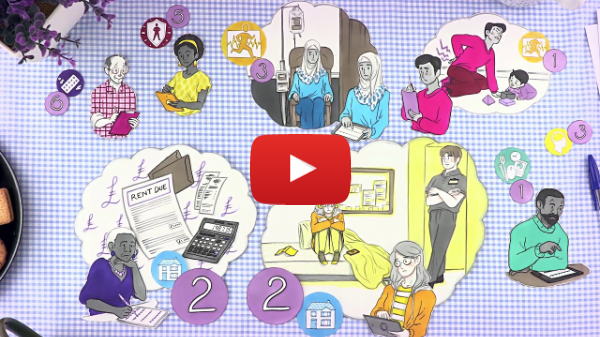Moving away from the Care Programme Approach - what does it mean?
| The way that care is planned and delivered by the Trust is changing to ensure everyone receives the same flexible, responsive and personalised approach. Like all mental health trusts across the country, we have been using the Care Programme Approach (CPA) to plan and deliver care for almost 30 years. Service users on CPA receive a care plan, including a crisis plan, and a care co-ordinator to organise their care.
Between 2024-2025, we will be moving away from CPA in line with guidance from NHS England and the national Community Mental Health Framework which has been co-produced with service users, carers and professionals.
The aim is to ensure that everyone receives the same level of care, including a named key worker, no matter if they have or have not been on CPA in the past.
The new approach is based on the following principles set out by NHS England:
A shift from generic care co-ordination to meaningful interventions which are identified at an early appointment and planned between the service user and their care team.
A named key worker (see next steps below) for all service users but with a multidisciplinary team approach, meaning the right people will be able to provide the right care based on the individual’s needs at the right time. A multidisciplinary team is a diverse group of professionals who combine their skills to help people.
High-quality co-produced, holistic, personalised care and support planning, with service users actively co-producing and regularly reviewing their care plan with staff (see information about DIALOG+ below).
Better support for and involvement of carers to provide safer and more effective care. This includes proactively seeking the contribution of carers and family members. A more accessible, responsive and flexible system with personalised and highly responsive crisis planning and safety planning in which approaches are tailored to the health, care and life needs, and circumstances of an individual, their carer(s) and family members.
|
|
|
Phase one - Rolling out DIALOG+
|
Our move away from CPA is starting with the roll-out of the DIALOG+ tool over 2024. DIALOG is a simple set of 11 questions that service users will do before, or during, their appointments. People are asked to rate their satisfaction and needs for care across different parts of their life and treatment. It helps to guide a structured conversation between a health professional and service user that is patient centred with a focus on key areas the patient would like to improve.
The output of the DIALOG assessment is a DIALOG+ care plan that the service user and health professional create together. It is specific to the service user and is easy to understand. The care plan will be digital, easy to change and updated regularly as agreed with the service user.
DIALOG+ is the first approach that has been specifically developed to make routine patient-clinician meetings therapeutically effective. Research studies in different mental health services and multiple countries have shown that using DIALOG+ can improve patients’ quality of life.
Watch the short animation below for more information about how DIALOG+ works:
|
|

| Better Environments |
|
|
Next steps
| Continuity of care is something that professionals and service users all want to achieve in community mental health services.
Following the rollout of DIALOG+, the next phase of the programme will involve introducing key workers so that all service users and not just those who are on CPA receive a named professional who they can contact.
The key worker role will be different from the care co-ordinator role. National guidance states that every member of the multidisciplinary team (MDT) should play a prominent role in sharing responsibility for an individual’s care and it should be the MDT as a whole playing the co-ordinating role across the various organisations and sectors from which its members are drawn (e.g. nursing, social care, occupational therapy, employment/vocational support, housing, substance use, VCSE).
The multidisciplinary team approach will help to address people’s social needs as well as their clinical needs, and reduce the reliance on a single care co-ordinator.
The move away from the care co-ordinator role is also an important step in supporting staff to perform the roles they qualified in and went into their professions to undertake, allowing them to apply their unique skills in supporting individuals as part of an MDT, such as in nursing, social work, or occupational therapy.
The scope of the key worker role is still being worked through and more information will be shared in our next update. |
|
|